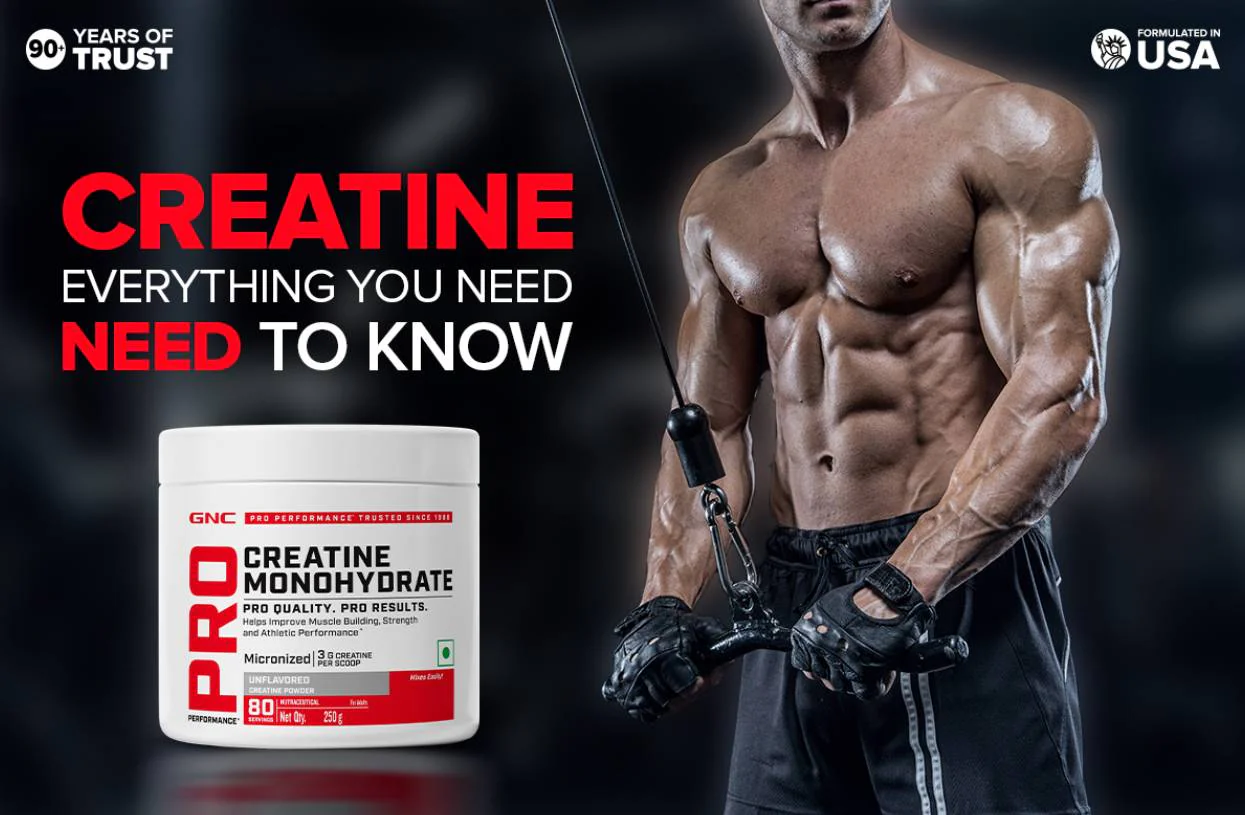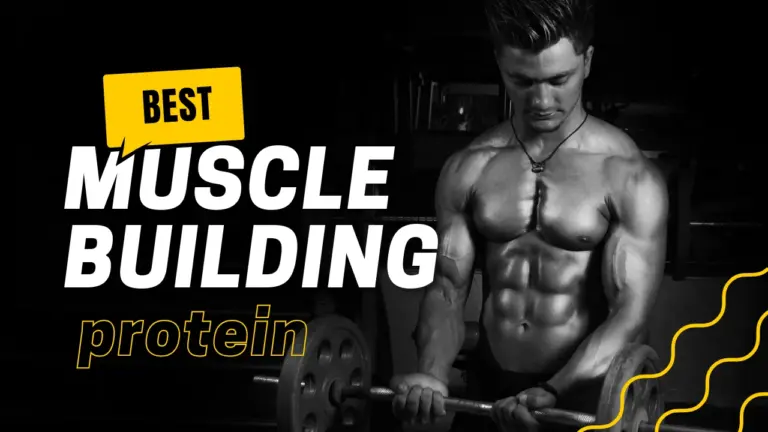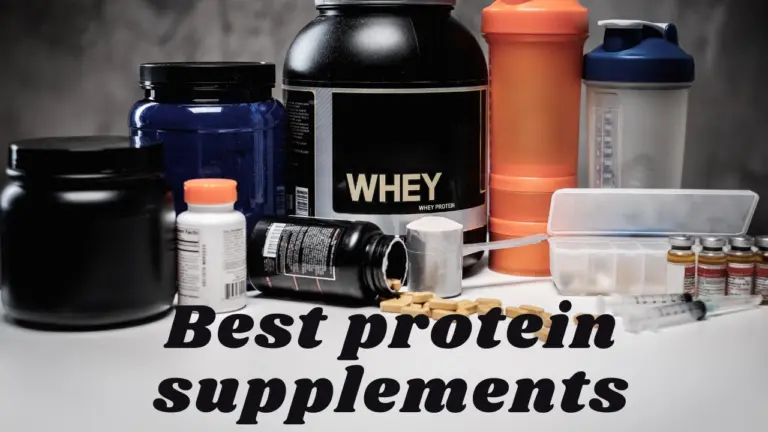Creatine Protein: Everything You Need to Know for Ultimate Strength, Energy, and Performance
When it comes to fitness supplements, Creatine Protein stands out as one of the most researched, effective, and widely used. Whether you’re an athlete, a bodybuilder, or just someone trying to increase strength and energy at the gym, creatine has probably come across your radar. But with so many supplements out there, you might be asking: Is creatine really worth it? What does it do? Is it safe?
This article provides a complete guide to creatine protein, exploring what it is, how it works in the body, the science-backed benefits, potential side effects, and how you can use it effectively to reach your fitness goals.
What is Creatine Protein?
Creatine is a naturally occurring compound found in your muscles and produced by your body using amino acids (the building blocks of protein). It’s also found in small amounts in foods like red meat and fish.
About 95% of the body’s creatine is stored in muscles, while the remaining 5% is found in the brain and other tissues. Your muscles use creatine as a rapid source of energy during high-intensity, short-duration activities like weightlifting, sprinting, or HIIT training.
In supplement form, creatine is usually sold as creatine monohydrate—the most researched and effective type.
READ MORE: Best Protein Supplements
How Does Creatine Work?
To understand creatine’s role, let’s break it down:
- Your muscles use ATP (adenosine triphosphate) as their main energy currency.
- During intense exercise, ATP gets used up quickly, and your body struggles to replenish it fast enough.
- This is where creatine comes in—it helps recycle ATP by donating phosphate groups, giving your muscles more immediate energy.
- The result: you can push harder, lift heavier, and perform more reps before fatigue sets in.
Think of creatine as a battery charger for your muscles—it helps recharge your energy system quickly.
Benefits of Creatine
Creatine Protein isn’t just hype; it’s backed by hundreds of scientific studies. Here are some of its proven benefits:
1. Increased Strength and Power
Creatine enhances your ability to generate force. This makes it a favorite among weightlifters, sprinters, and athletes involved in explosive movements.
2. Improved Muscle Growth
By allowing you to train harder and longer, Creatine Protein indirectly promotes muscle hypertrophy (growth). It also causes muscles to store more water, giving them a fuller look.
3. Enhanced Recovery
Creatine helps reduce muscle cell damage and inflammation, leading to faster recovery after intense workouts.
4. Better Performance in High-Intensity Workouts
Creatine Protein is especially effective for activities requiring quick bursts of energy—like sprinting, CrossFit, and heavy lifting.
5. Brain Benefits
Research shows creatine can improve cognitive performance, memory, and mental fatigue—especially in people who don’t consume much meat or fish.
6. Support in Medical Conditions
Creatine supplementation has shown promise in helping with conditions like Parkinson’s disease, muscular dystrophy, and neurological disorders, though more studies are needed.
Myths and Misconceptions About Creatine
Despite its popularity, Creatine Protein is surrounded by myths. Let’s bust some of the most common ones:
- Myth 1: Creatine is a steroid.
No—it’s a natural compound, not a hormone or steroid. - Myth 2: Creatine causes kidney damage.
Research shows creatine is safe for healthy individuals when taken in recommended doses. People with pre-existing kidney issues should consult a doctor first. - Myth 3: Creatine causes dehydration or cramps.
In fact, studies suggest creatine may actually help with hydration by drawing water into muscles. - Myth 4: You’ll lose all gains when you stop.
You may lose some water weight, but the muscle and strength you built remain.
Types of Creatine Supplements
The most common and effective form of Creatine Protein is Creatine Monohydrate. Other forms exist, like creatine HCL, buffered creatine, and creatine nitrate, but none have shown to be significantly better.
If you’re new to creatine, stick with creatine monohydrate—it’s cost-effective, proven, and reliable.
How to Use Creatine
There are two common approaches:
1. Loading Phase
- Take 20 grams per day (split into 4 doses of 5g) for 5–7 days.
- Then switch to 3–5 grams daily (maintenance).
- This quickly saturates your muscles with creatine.
2. No Loading Phase
- Take 3–5 grams daily from the start.
- It may take 3–4 weeks to fully saturate your muscles.
Both methods work—the choice depends on how quickly you want results.
When Should You Take Creatine?
- Post-Workout: Many experts recommend taking creatine after training, when your muscles are primed to absorb nutrients.
- Anytime: Since creatine builds up in muscles over time, timing isn’t as important as consistency.
- With Carbs & Protein: Taking creatine with a meal containing carbs and protein may improve absorption.
Side Effects of Creatine
Creatine Protein is generally safe, but here are some possible side effects:
- Water Retention – muscles hold more water, making you look “puffed.”
- Digestive Issues – taking too much at once may cause stomach discomfort.
- Weight Gain – initial weight gain is mostly water, not fat.
For most healthy adults, creatine has no harmful long-term side effects.
Who Should Use Creatine?
- Athletes – looking for improved performance.
- Bodybuilders – wanting muscle growth.
- Fitness Enthusiasts – who want more energy at the gym.
- Vegetarians/Vegans – who may have lower natural creatine levels.
- Older Adults – to support muscle mass and strength.
Who Should Avoid Creatine?
- People with kidney or liver problems.
- Those advised by a doctor not to take supplements.
- Individuals not engaging in physical training (as benefits may be minimal).
Creatine vs. Protein Powder: What’s the Difference?
Many people confuse Creatine Protein with standard protein supplements, but they serve different purposes:
- Creatine = boosts energy and performance.
- Protein = provides building blocks for muscle repair and growth.
They work best together—protein helps repair muscles after workouts, while creatine helps you train harder.
Tips for Getting the Most Out of Creatine
- Stay Hydrated – Drink plenty of water since creatine increases water retention in muscles.
- Be Consistent – Take it daily, not just on workout days.
- Pair with Training – Creatine works best when combined with resistance training.
- Use High-Quality Supplements – Choose trusted brands with pure creatine monohydrate.
Final Thoughts
Creatine Protein isn’t just another trendy supplement—it’s one of the most researched and effective performance enhancers in the world. From boosting strength and muscle growth to aiding recovery and even supporting brain function, its benefits are hard to ignore.
If you’re a healthy adult who exercises regularly, adding creatine to your routine can help you reach your fitness goals faster. It’s safe, affordable, and proven to work.
Remember, supplements aren’t magic—they work best when paired with proper training, nutrition, and rest. Think of creatine as a performance booster that helps you unlock your full potential in the gym and beyond.





